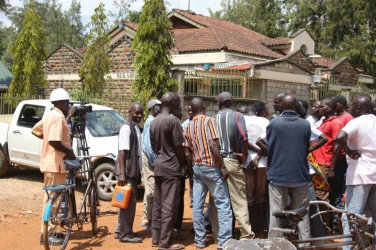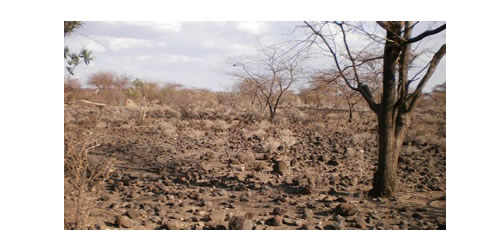Seed Sensation – Can A UK Startup Revolutionise Agriculture?
“This is the greatest thing in agriculture for the last 100 years.”
Peter Blezard is honing his pitch ahead of a meeting with US investors and with a background in marketing he is clearly not someone who believes in underselling a product. But then again, as founder and chief executive of UK-based biotech company Azotic, Blezard is offering a deceptively simple fix to a major environmental problem.
The problem in question is nitrogen pollution. Nitrogen-based fertilisers are a staple of agricultural production and although essential to maintain crop yields they also cause huge problems, particularly in terms of ‘run off’ into water supplies. Indeed, back in 2011 a report published by the European Union estimated that nitrogen pollution was costing between £50bn and £280bn a year in Europe alone, and in addition to an adverse impact on water supplies it was also contributing to climate change while adversely affecting human health.
There are ways to mitigate the impact of nitrogen pollution, notably a much more selective approach to applying fertilizers. To some extent this can be facilitated through the use of advanced sensors and computer controlled farm vehicles. Deployed on, tractors, satellites and drones, the sensors map out fields in terms of fertility and requirement for nutrients and this information is used to focus the application of fertilizers to those areas where they are most needed. This approach not only makes the work of applying nutrients more cost-effective, it also reduces pollution. However, it also depends on farmers having access to the necessary high-tech resources.
A Sugar Coating
Blezard’s company has developed what is arguably a more direct approach. Put simply, Azotic has developed a coating for seeds based around a bacteria rejouicing in the name of Gluconacetobacter diazotrophicus. Plants coated with this chemical fix nitrogen from the air – up to 70% of their total requirement, the company says – meaning they require much less from the soil. That in turn means farmers can significantly reduce the amounts of nutrient they apply.
So potentially, Azotic’s coating offers a game-changing and affordable solution to farmers around the world. But the company’s ability to deliver on that promise probably depends on two factors. Firstly, the science holding up and secondly (as a small company) finding an effective route to market in an industry dominated by big players.
Blezard is confident on the chemistry and biology. The product has been developed by a team of scientists at BioCity in Nottingham and has been tested in Europe and the US. “The trials have been conducted by independent research organisations,” says Blezard. “And they indicate that nitrogen fixing can reduce the amount of nitrogen fertiliser required by 50%. That’s represents a saving for the grower and it’s good for the environment.”And as Blezard stresses, the root technology is not new or exotic. “Rice has been fed for thousands of years with bacteria and the same is true of legumes. But our product can be used with a much wider range of crops, including wheat and oil seed rape.”
Source: Forbes




